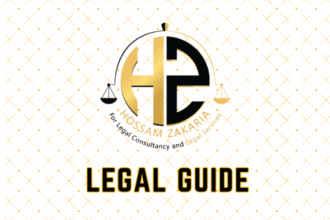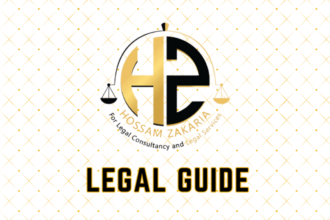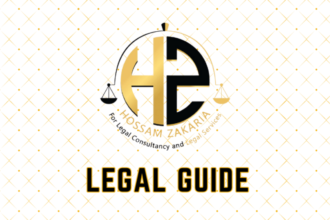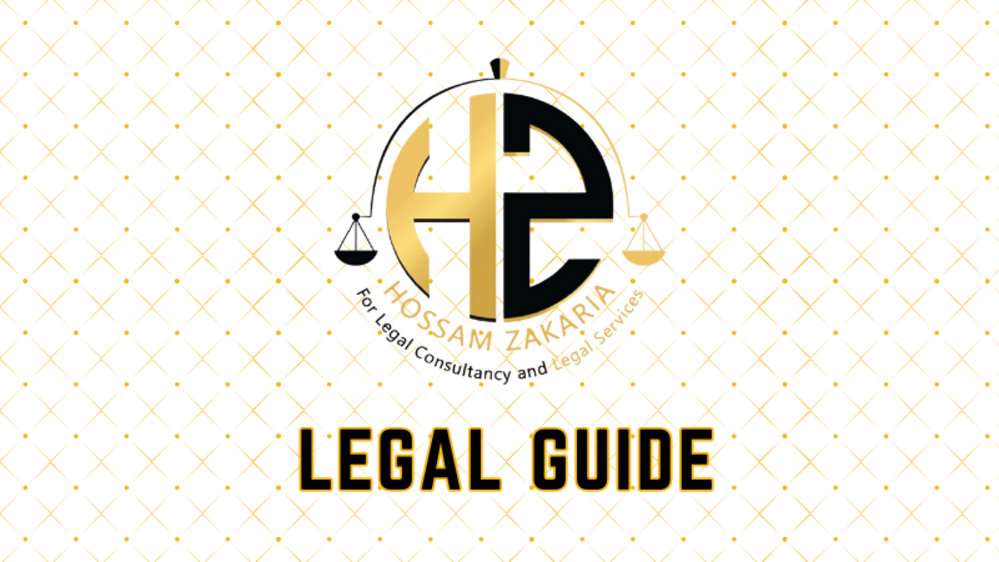Introduction: The New Era of Arbitration in UAE Law
The United Arab Emirates (UAE) continues to solidify its reputation as a premier hub for commerce, cross-border transactions, and dispute resolution in the Middle East. At the heart of this ecosystem is arbitration—a preferred mechanism favored for its flexibility, confidentiality, and enforceability, particularly underpinned by the UAE Federal Arbitration Law (Federal Law No. 6 of 2018). As of 2025, significant legal updates, coupled with progressive interpretations from regulatory authorities like the Ministry of Justice and pivotal court precedents, have further refined the arbitration landscape. Understanding these recent amendments is essential for businesses, legal professionals, and C-suite executives seeking to navigate disputes efficiently and remain compliant with UAE law. This article provides in-depth, consultancy-grade analysis and actionable guidance on arbitration procedures and arbitrator appointments under the 2025 legal regime, drawing on official sources and real-world insights.
With a focus on the latest federal decrees, cabinet resolutions, and procedural innovations, we explore the strategic impact of these changes, compare the pre- and post-2025 frameworks, examine compliance risks, and outline best practices for organizations in the UAE. Whether you are an in-house legal counsel, a decision-maker in a multinational company, or a practitioner advising clients, this article is your authoritative resource for navigating arbitration in the UAE’s evolving legal environment.
Table of Contents
- Overview of UAE Arbitration Law and 2025 Legal Updates
- Key Provisions and Processes in UAE Arbitration
- Procedures for Appointing Arbitrators: 2025 Requirements
- Comparative Analysis: Old vs. New Arbitration Laws
- Application and Case Scenarios: Strategic Insights
- Risks of Non-Compliance and Proactive Compliance Strategies
- Frequently Asked Questions and Consultancy Best Practices
- Conclusion and Future Outlook: Navigating Arbitration in the UAE
Overview of UAE Arbitration Law and 2025 Legal Updates
The Legal Foundation: Federal Law No. 6 of 2018
The Federal Arbitration Law, promulgated as Federal Law No. 6 of 2018, represents a cornerstone for alternative dispute resolution (ADR) in the UAE. Modeled on the UNCITRAL Model Law, it provides a coherent framework for domestic and international commercial arbitration conducted within the UAE. The law is reinforced by Cabinet Resolutions, Ministerial Guidelines, and, crucially, periodic updates that ensure alignment with international best practices and the evolving needs of business.
Recent Legal Updates: 2025 and Beyond
In response to feedback from practitioners and the business community, amendments and new regulations have been enacted in 2025, as reflected in:
- Federal Decree-Law No. 12 of 2024: Amends key appointment processes and arbitrator obligations.
- Cabinet Resolution No. 15 of 2025: Issues executive regulations on the accreditation, training, and conduct of arbitrators.
- Ministry of Justice Circulars (2024-2025): Provide clarifications regarding disclosure requirements and conflict of interest protocols.
The focus of these updates is to enhance transparency, professionalise arbitrator appointments, and accelerate dispute resolution, thereby increasing investor confidence and aligning the UAE with global arbitration standards.
Why These Updates Matter: Strategic Significance
- Global Alignment: Harmonisation with leading arbitration jurisdictions makes UAE-seated awards more readily enforceable internationally.
- Commercial Certainty: Businesses gain predictable, streamlined dispute resolution processes that minimize costly delays.
- Risk Mitigation: Enhanced disclosure and compliance obligations reduce the risk of awards being set aside due to procedural irregularities.
Key Provisions and Processes in UAE Arbitration
Scope and Applicability
Federal Law No. 6 of 2018, as amended, applies to any civil or commercial dispute capable of settlement by agreement, save for matters expressly excluded by law (e.g. criminal matters, certain family law disputes). Arbitration clauses are enforceable if in writing and if they clearly evidence the parties’ consent.
The Arbitration Agreement
The foundation of any arbitral process, the arbitration agreement must:
- Be in writing (including electronic means);
- Clearly identify the scope of disputes subject to arbitration;
- Specify (optionally) the seat of arbitration, language, number of arbitrators, and applicable rules.
Professional Insight: Parties should draft arbitration clauses carefully, as ambiguous or incomplete provisions can lead to enforceability challenges or jurisdictional disputes.
Commencement and Notification Procedures
Proceeding with arbitration commences upon written notice by one party to the other, setting out:
- The existence and nature of the dispute;
- The relevant arbitration agreement;
- Appointment of an arbitrator (if unilaterally allowed).
Consultancy Tip: Ensure designated representatives have legal capacity and powers of attorney are properly attested, as procedural errors at this stage are a leading cause of award annulments.
Jurisdiction and Powers of the Tribunal
The arbitral tribunal is empowered to:
- Rule on its own jurisdiction (Kompetenz-Kompetenz principle);
- Grant interim and conservatory measures;
- Determine applicable law and procedures (if not governed by the agreement or institutional rules);
- Order document production and witness examination.
Role of UAE Courts in Arbitration
UAE courts provide essential support without undermining party autonomy, including:
- Appointing arbitrators in default scenarios;
- Issuing interim measures when the tribunal is not yet constituted;
- Assisting in collection of evidence;
- Handling annulment, recognition, and enforcement proceedings.
Executive Guidance: While courts maintain a pro-arbitration stance, strict adherence to procedural requirements remains critical to avert judicial intervention that could delay or derail proceedings.
Procedures for Appointing Arbitrators: 2025 Requirements
General Principles of Arbitrator Appointment
Appointment procedures are typically dictated by the arbitration agreement and the chosen institutional rules (e.g., Dubai International Arbitration Centre or Abu Dhabi Commercial Conciliation and Arbitration Centre). However, in the absence of express provisions, the Federal Arbitration Law–as amended–imposes default procedures to ensure fairness and expediency.
Eligibility, Accreditation, and Independence
Cabinet Resolution No. 15 of 2025 introduces a tiered accreditation regime for arbitrators in the UAE:
- Mandatory registration with the Ministry of Justice or an accredited body;
- Fulfillment of continuous professional development (CPD) hours;
- No current criminal convictions involving moral turpitude;
- Disclosure of all potential conflicts of interest and confirmation of independence and impartiality.
Arbitrators must also submit declarations upon appointment and whenever circumstances arise that may affect impartiality (as clarified by Ministry of Justice Circulars).
Appointment Process: Step-by-Step 2025 Legal Flow
- Nomination: Each party may nominate one arbitrator. For a three-member tribunal, the two nominees appoint the third (presiding) arbitrator.
- Default Procedure: If a party fails to appoint within 15 days (or other agreed period), the other party may apply to the competent UAE court for appointment.
- Court Vetting: The court’s role is primarily administrative, ensuring candidates meet qualification and independence criteria but not substituting its own preferences.
- Institutional Involvement: For institutional arbitrations, the relevant center’s internal rules may supplement or supersede these steps, provided they do not conflict with mandatory UAE law.
Key Note: The new regime expedites the process but requires rigorous record-keeping and disclosure by both arbitrators and parties. Suggest integrating a visual flowchart here for clarity.
Duties and Obligations of Appointed Arbitrators
- Maintain procedural integrity and equal treatment of parties;
- Commit to expeditious issuance of awards, optimally within 6 months from final submissions (unless extended by agreement);
- Remain fully independent, disclosing any change in circumstances affecting neutrality.
Recommendation: Businesses should perform due diligence on nominated arbitrators’ independence, experience, and UAE law knowledge before confirmation.
Comparative Analysis: Old vs. New Arbitration Laws
A clear understanding of how the 2025 legal updates affect procedural and substantive aspects is critical for compliance and informed decision-making. The following table summarizes key differences:
| Aspect | Pre-2025 Law | 2025 Legal Framework |
|---|---|---|
| Arbitrator Appointment Deadlines | Not explicitly defined (left to party agreement/about 30 days) | Strict 15-day deadline, with court empowerment for delays |
| Arbitrator Accreditation | No mandatory accreditation; voluntary listings | Mandatory Ministry-accredited or center-accredited panels |
| Disclosure Obligations | General expectation of independence | Formal, ongoing disclosure required by law and circulars |
| Court Intervention | Broader discretion for nomination in default | Court's role strictly administrative/criteria-based |
| Continuing Education | Not required | Compulsory CPD hours/logs per Cabinet Resolution |
Case Example: The Impact of the 15-Day Deadline
Consider a scenario where Party A delays nominating an arbitrator beyond the prescribed period. Under the 2025 law, Party B can now apply to the competent court for a prompt appointment, virtually eliminating the prior risk of protracted deadlock or litigation over appointment procedure. Business continuity and dispute resolution timelines are thus significantly improved.
Application and Case Scenarios: Strategic Insights
Case Study 1: Construction Sector Dispute
Background: A UAE developer and an international contractor have a standard arbitration clause referencing UAE law but lack detailed appointment mechanics.
Application: When a dispute arises, the contractor fails to nominate an arbitrator within 15 days. The developer immediately petitions the Dubai Court of First Instance. Within days, the court appoints an arbitrator from the Ministry-registered list. The tribunal is constituted more quickly, and the case proceeds without costly delays.
Insight: The 2025 regime’s clarity and deadlines minimize tactical stalling and protect business interests in time-sensitive sectors such as construction and real estate.
Case Study 2: Alleged Arbitrator Conflict and Annulment
Background: During a commercial arbitration, evidence emerges that an arbitrator failed to disclose past advisory work for one party’s parent company.
Resolution: Under the 2025 rules, the tribunal must disclose all such circumstances. Failure leads to a challenge, and potential annulment by the UAE courts on grounds of procedural irregularity—a risk that is considerably heightened and explicitly addressed by the new legal standards.
Lesson: Rigorous pre-appointment due diligence and ongoing monitoring for conflicts of interest are now critical compliance requirements.
Visual Suggestion
Place a table summarizing the steps required to investigate and challenge arbitrator independence. Visual tools such as compliance checklists and step diagrams can enhance practical understanding for business HR or legal departments.
Risks of Non-Compliance and Proactive Compliance Strategies
Risks and Sanctions for Non-Compliance
- Annulment of Award: Violations, such as undisclosed conflicts or improper appointments, can result in court setting aside the arbitral award.
- Delayed Enforcement: Defective processes invite challenges during enforcement proceedings, causing costly delays.
- Criminal Liability: Falsifying disclosures or circumvention of eligibility rules can, under criminal provisions, result in penalties for both arbitrators and parties.
| Risk Event | Remedy/Consequence |
|---|---|
| Unqualified arbitrator appointed | Annulment upon challenge, re-arbitration possible |
| Delayed appointment procedures | Court-imposed arbitrator; possible cost penalties |
| Failure to disclose conflicts | Removal of arbitrator, possible sanctions |
Compliance Strategies for Organizations in the UAE
- Update Arbitration Clauses to reflect the latest law, specifying appointment timelines, qualifications, and language/venue preferences.
- Due Diligence: Partner with legal advisers to vet proposed arbitrators and confirm proper accreditation.
- Internal Training: Ensure relevant staff are briefed on 2025 requirements and have access to compliance checklists.
- Maintain Documentation: Keep comprehensive, dated records of all appointment, notification, and declaration activities.
- Liaise with Accredited Institutions: Engage with listed arbitration centers or the Ministry of Justice to ensure up-to-date procedures are followed.
Consultancy Best Practice: Implement arbitration management protocols and designate internal compliance champions for major projects or contracts.
Frequently Asked Questions and Consultancy Best Practices
Is Institutional or Ad Hoc Arbitration Preferable Under the 2025 Law?
While both remain viable, institutional arbitration is generally advantageous for cross-border transactions given the administrative support and procedural safeguards. However, ad hoc arbitration offers flexibility, provided parties are experienced and procedures are well defined.
How Should Parties Handle Alleged Arbitrator Bias?
Immediately raise the issue in writing to the tribunal and, if unresolved, escalate to the competent court. Document every disclosure and response, as failure to adhere to official challenge procedures can forfeit rights.
Can Non-UAE Nationals Serve as Arbitrators?
Yes, provided they meet the UAE’s legal and accreditation requirements. This reflects the UAE’s position as an international arbitration hub—but confirmation on current Ministry-approved panels is strongly advised.
Are Virtual or Hybrid Arbitration Hearings Permitted?
Yes; recent Ministry of Justice directives and institutional rules explicitly permit virtual or hybrid hearings, affirming the UAE’s commitment to modern dispute resolution and accessibility.
Consultancy Insight:
- Embed regular training on evolving arbitration law within your corporate legal function.
- Use process maps and flow diagrams to educate stakeholders on compliant appointment and notification steps.
- Conduct annual audits of standard arbitration agreements in key contracts.
Conclusion and Future Outlook: Navigating Arbitration in the UAE
The post-2025 legal regime for arbitration in the UAE demonstrates a deliberate evolution toward greater transparency, predictability, and international harmonization. By modernizing appointment procedures, professionalising arbitrator accreditation, and clarifying disclosure obligations, the UAE continues to foster a business-friendly environment where commercial disputes can be efficiently resolved. These regulatory advances mitigate risks, promote fair outcomes, and solidify the UAE’s competitive edge as a global arbitration center.
Looking ahead, organizations—and their in-house counsel—should proactively review standard forms, maintain robust compliance frameworks, and engage with expert advisers to anticipate further regulatory innovation. In a region defined by rapid growth and cross-border complexity, mastery of the arbitration process is no longer optional but essential for legal and commercial success.
Best Practice for 2025 and Beyond: Stay informed of updates via the UAE Ministry of Justice, institutional arbitration centers, and qualified legal consultants. Regular compliance health checks and systematic contract reviews are the optimal strategies to avoid costly disputes and protect your organization’s interests in the dynamic UAE legal landscape.



